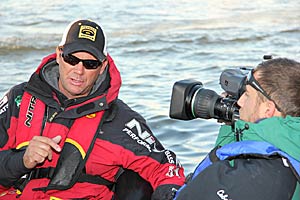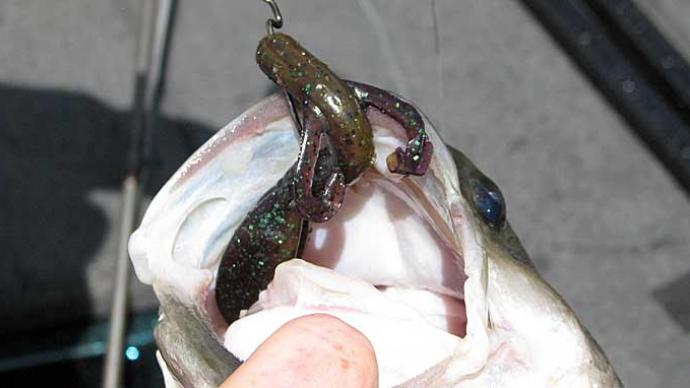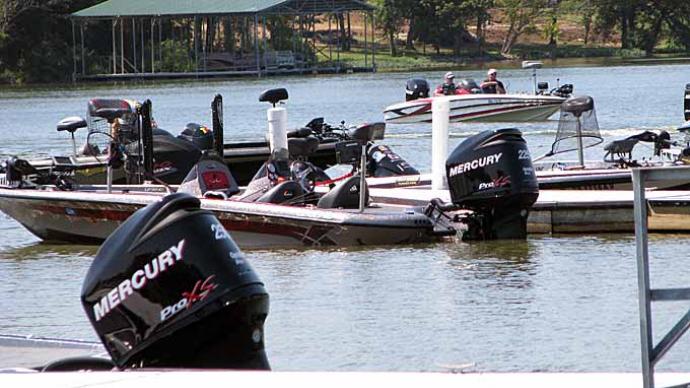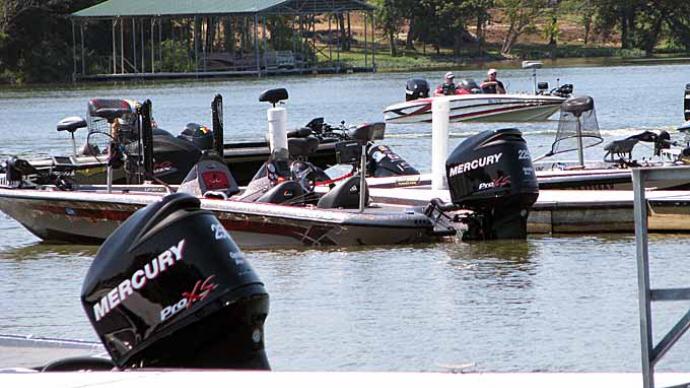
You've decided it's time to move to the next level toward becoming a professional on the BASS tour. But before you make a move, you should first understand the emotional roller coaster and how to accept the highs and lows. There are so many ups and downs along the way that some question if it's all worth the trouble. The financial aspect, sponsors, long drives, endless hours on the water, and the frustrations when the pattern falls apart. I could go on and on.
You had some success on the local level, and you're tired of constantly fishing the same waters year after year. You've put your time in and want a shot at the big boys. Anything's possible. Brian Kerchal did it, and, who knows, you could be that next someone.
If you want to make it from local clubs and federation tournaments to the regional and national scene, you better be one of three things; extremely lucky, wealthy, or one heck of a salesman. The financial strains you can put on your family start with the entry fees. These $600 or $1,200 hundred dollar fees are the least of your worries. The hotel expenses range from $500 to $1000 a week, and if you don't practice, you just gave your entry fee to someone else.
The fuel expenses are probably the worst. Filling up your tow vehicle tank now costs a small fortune. The average distance for these tournaments is more or less 1000 miles one way. If you get 250 miles to a tank, you will fill up four times to get there. The boat needs gas, and if you need to cover a lot of water, you will fill your 54 or 56-gallon tank twice. You better have a 21- or 22-foot bass boat with a 225 on the back, or you're fishing from the back seat. You can eat cheaply if you really watch so you can get by with $100 to $200 per week. Excluding the entry fee, you can double the rest of the expenses if you go down to practice.
You've done your research and put together what you consider one heck of a resume. You're involved in every organization, from church youth advisor to secretary to the Pope. Your background involves titles from every local tournament, from Rookie of the Year to Grand Pooba. You took business classes and public speaking classes. You are no beer-guzzling, 350-pounder with your shirt hanging open and untidy. You mail 50 resumes to your top 50 companies and wait for the contracts to roll in. The only problem is they don't and most likely won't. Oh, sure you will get responses like "thank you for your interest," but it will go directly to the file. For every company involved in the fishing industry, 150 anglers are looking to get on their pro staff. If you have yet to make a name for yourself, then you are just another name. When and if you get some recognition or make a name for yourself, they will start calling you. If you haven't figured it out yet, the bottom line is money. You better be able to sell products and constantly think of new ways to promote your sponsors.
As I stated, you will drive approximately 1000 miles to any tournament. Those who have truck sponsors or can use your company vehicle and write off the expense can skip this section. OK, all the rest of you better realize the wear and tear on your tow vehicle will add up quickly. You better plan on getting a new vehicle every two to three years. Sure, you can take the chance and hope to run it till it drops, but if you're heading to a tournament and have the transmission go out, several things have just happened. You will most likely miss the tournament. You have prevented your sponsors from getting that advertising you promised them, and all the money you put into this tournament is gone. Additional expenses will come out of your pocket for repairs.
Often I'll take a friend with me to handle the long hours behind the wheel. I like to let my friend do most of the driving so I can go over my game plan and study my maps again. (You don't realize what you can find by setting your maps down for a while and looking at them later with a clear head). I also put together monthly reports that need to go to sponsors, and an article or two can be pumped out while on a 12 to14 hour's drive.
Once you arrive at the tournament site, remember to get that fishing license. I like to spend the rest of the day in town, familiarizing myself with the local area. I'll drive to different ramps because it's much more difficult to find a ramp in the dark. You don't know if you will be able to use it. These ramps may be too shallow, have specific hours of operation, or maybe they're no longer there. The next several days will consist of getting up at 4:00 am and on the water 'till you can barely see your way back to the ramp. You'll grab a bite to eat on your way back to the hotel. After you've cleaned up the boat and covered it for the night, you will go over what you did that day; by either inputting it in your computer or logbook. I carry a tape recorder with me all the time. It's easier to enter into the computer with waypoints and specifics about an area. Next, you must spend a little time reviewing your game plan. It will now be 10 or 11 PM, and time to get a little sleep.
The game plan is in place. You've caught some good fish and have established two patterns. You feel confident about your patterns. You've even found several areas that don't get pressure from the locals. This is it; you've finally figured it out. All it takes is a change in weather, barometric pressure, fog, or what have you to kill your pattern. The seasoned pros will be able to adjust because it's time on the water that gives you this knowledge. The adjustment could be the difference between using 12- or 8-pound test line. It could be the size of the willow leaf blade on your spinnerbait. It could be the tight vs. wide wobble of your crankbait. The point is the pros know when and how to make the proper adjustment. Oh, sure you're going to find a straggler 12-inch fish here or there, but all that's going to do is prolong you from making that adjustment that will produce those quality bass.
The emotional roller coaster is in every facet of the process. You need to be driven by an inner desire stronger than words can explain, or you have a wish to end up in the poor house with nothing to show for it and a broken home. It can be a rewarding trip as long as you plan ahead for the ride.
Swift is a professional bass angler from Maryland who guides on the Potomac River and Lake Anna in Virginia. He's been fishing national tournament trails for several years and is sponsored by All Pro Rods, Gamakatsu/SPRO Corp., and Silverbuddy Outfitters.




